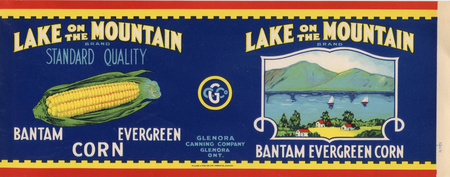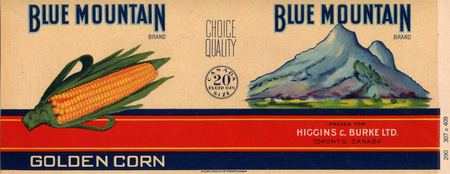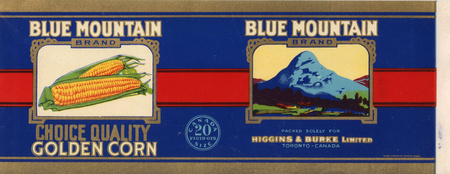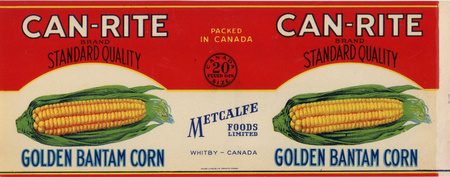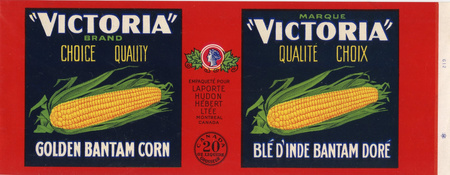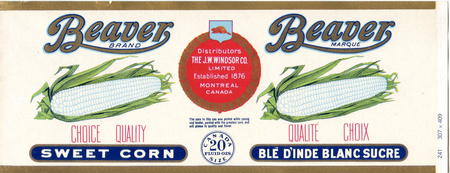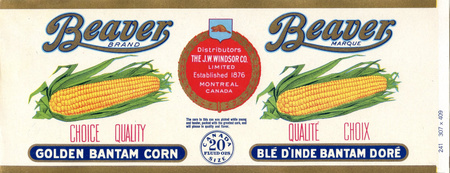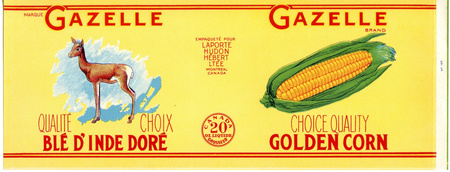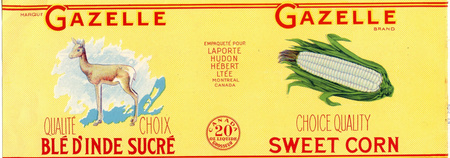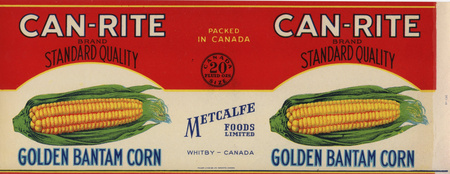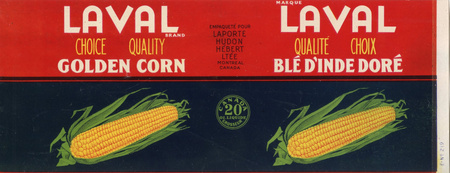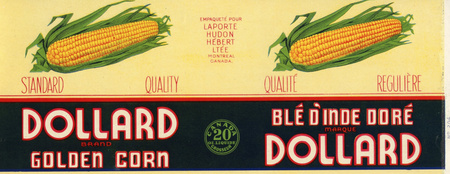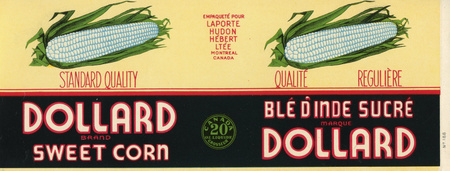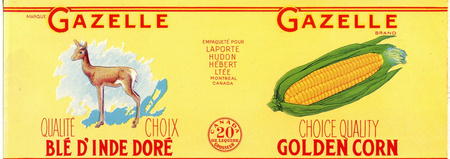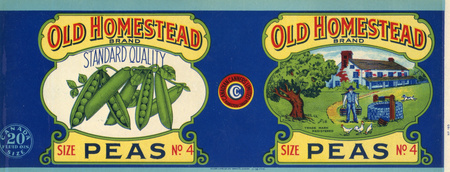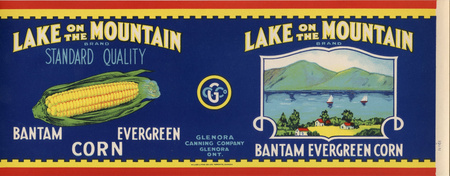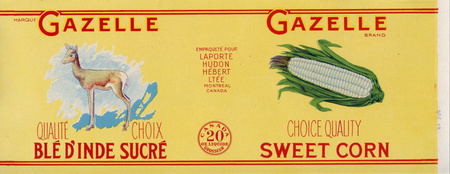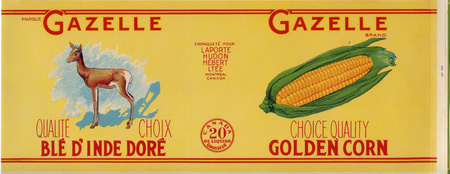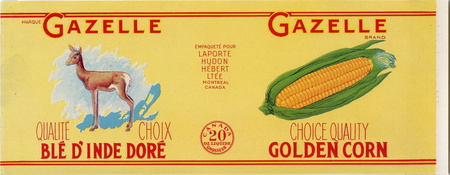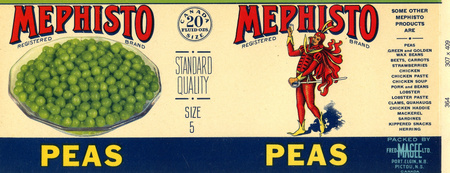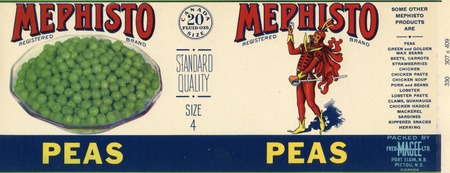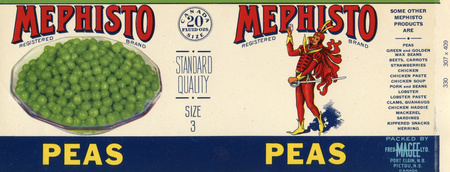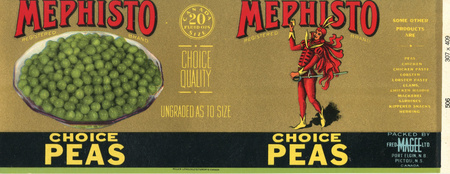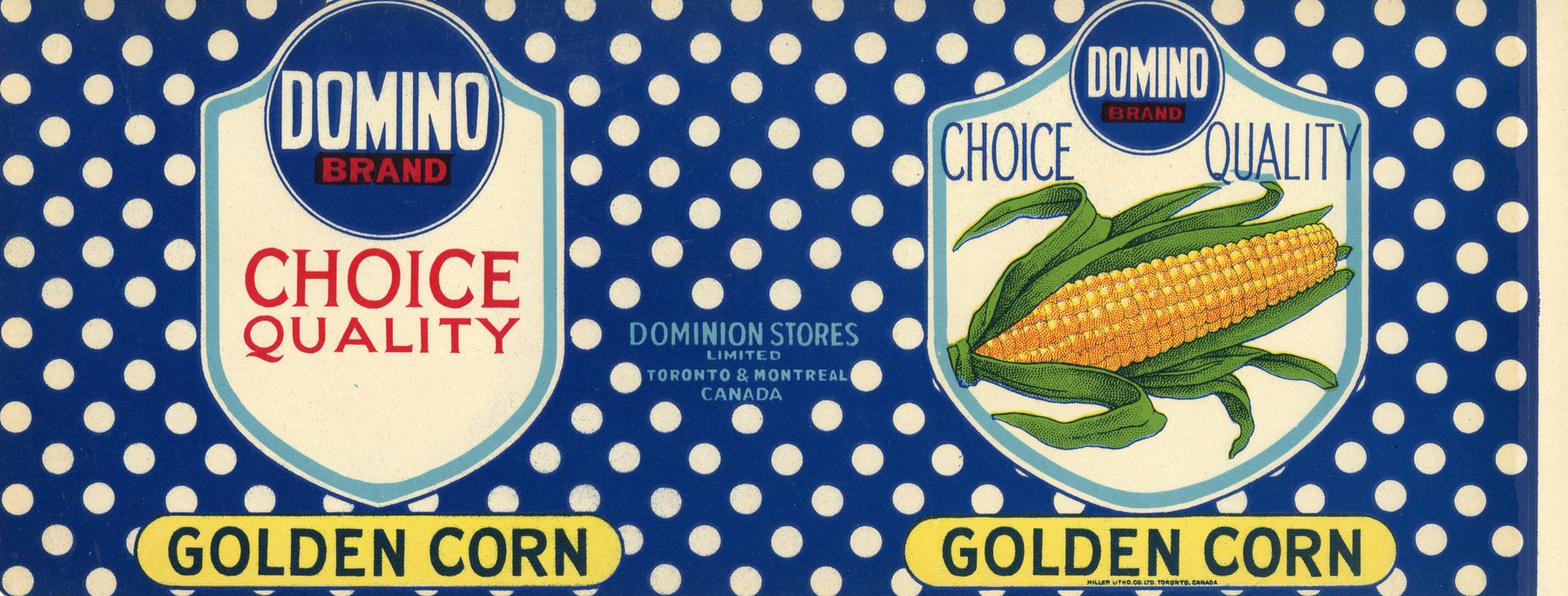Étiquette pour boîte de conserve
Utiliser cette image
Puis-je réutiliser cette image sans autorisation? Oui
Les images sur le portail de la collection d’Ingenium ont la licence Creative Commons suivante :
Copyright Ingenium / CC BY-NC-ND (Attribution-NonCommercial 4.0 International (CC BY-NC 4.0)
ATTRIBUER CETTE IMAGE
Ingenium,
2008.1402.001
Permalien: https://files.ingeniumcanada.org/items/coll/215/042/2008-1402-001-aa-cs_thumb.jpeg
Ingenium diffuse cette image sous le cadre de licence Creative Commons et encourage son téléchargement et sa réutilisation à des fins non commerciales. Veuillez mentionner Ingenium et citer le numéro de l’artefact.
TÉLÉCHARGER L’IMAGEACHETER CETTE IMAGE
Cette image peut être utilisée gratuitement pour des fins non commerciales.
Pour un usage commercial, veuillez consulter nos frais de reproduction et communiquer avec nous pour acheter l’image.
- TYPE D’OBJET
- litho
- DATE
- Inconnu
- NUMÉRO DE L’ARTEFACT
- 2008.1402.001
- FABRICANT
- Miller Litho Co. Ltd.
- MODÈLE
- Domino Brand Choice Quality Golden Corn
- EMPLACEMENT
- Toronto, Ontario, Canada
Plus d’information
Renseignements généraux
- Nº de série
- S/O
- Nº de partie
- 1
- Nombre total de parties
- 1
- Ou
- S/O
- Brevets
- S/O
- Description générale
- Lithographed print and image on off-white paper; off-white, green, yellow, red and blue text and graphics.
Dimensions
Remarque : Cette information reflète la taille générale pour l’entreposage et ne représente pas nécessairement les véritables dimensions de l’objet.
- Longueur
- 27,4 cm
- Largeur
- 10,7 cm
- Hauteur
- S/O
- Épaisseur
- S/O
- Poids
- S/O
- Diamètre
- S/O
- Volume
- S/O
Lexique
- Groupe
- Agriculture
- Catégorie
- Commerce
- Sous-catégorie
- S/O
Fabricant
- Ou
- Miller
- Pays
- Canada
- État/province
- Ontario
- Ville
- Toronto
Contexte
- Pays
- Inconnu
- État/province
- Inconnu
- Période
- Inconnu
- Canada
-
Many of the plates, proofs, labels and posters were produced for Canada's growing number of manufacturers in everything from farm implements to preserved food, pharmaceuticals and musical instruments. Some of these, like Massey Harris, were once giants. Others may have left no other traces than the plate and proof for a cheque, receipt or letterhead. The artifacts and print specimens represent the output of one of the fastest growing industries in this period: printing and graphic arts. Not only was printing growing rapidly as a sector, it was also subdividing into specialized segments. The engraving and lithography trades, whose processes excelled at reproducing creative imagery, colour, and decorative calligraphy, commanded the market for stationery, packaging, posters, promotional calendars and catalogue covers. The collection attests to the emergence of a new market, consumer goods, and a new industry, advertising. During this period, the role of the household as a centre of production was steadily weakened as its members became implicated in the labour market. As members became increasingly dependent on cash employment, household needs like clothing and food had to be met by purchasing goods. At the same time manufacturers, pressed by competition, continually sought both to expand their markets and reduce their costs through mass production. National markets for consumer goods thus emerged. The printing and publishing industry played a key role in this process through advertising and packaging. En savoir plus - Fonction
-
Type sample of can label. - Technique
-
Represents the production processes in commercial engraving and lithography from the late 19th century through to the mid-20th century. The Frederick Martin tools and the gravure plates represent the craft of copper plate engraving in its traditional form. This consisted of cutting a design into the polished face of the plate, either exclusively with hand tools or with some degree of etching. After the plate was inked and thoroughly wiped, ink remained in these low lying areas. This ink was transferred to the paper when plate and paper were placed under pressure in a press (e.g. the Kelton press). The Frederick Martin tools include devices used both in engraving (gravers, scrapers and burnishers) and in etching (hand clamp). Engravers were assisted by the ruling machine to expedite laying down parallel lines and the pantograph (e.g. 1969.1286) to facilitate copying from a drawing, original plate, or master template. While no evidence of these devices is found among the Frederick Martin tools, it is likely that some of the plates were produced at least partly with them. Lithography is a process that does not rely on an elevated or recessed area to carry ink on the plate. Instead, in traditional lithography the image is applied to a polished, fine grained slab of limestone with a grease based ink. The stone is then dampened with water so that the stone can be repeatedly reinked without ink adhering to the nongreasy portions of the stone. The stones and early label specimens in the Art Alder collection represent this traditional form of lithography. The image was drawn on the stone directly with pen and grease pencil or by scratching through a gum coating to expose the ink absorbing stone in selected areas. Generally, these small stones carrying the original image were not placed in the press. Instead, images from several were applied to a final press stone by the use of transfer paper. It is this type of small, transfer stone that we are acquiring. In colour, or chromo-, lithography, a separate stone was required for each colour, with the sheet passing through the press several times to built up the final image. One of the most valuable items in the Art Alder acquisition is a progressive series of proofs for a multi-coloured label for the Niagara Falls Canning Co. By 1940, stone lithography and the transfer process had been superseded in most applications by offset lithography, in which the image carrier was a flexible metal plate wrapped around an impression cylinder. Image transfer to the plate by 1940 was largely by photographic means. Some of the label specimens we are acquiring clearly are the product of this photographic process. En savoir plus - Notes sur la région
-
Inconnu
Détails
- Marques
- "DOMINO/ BRAND", "CHOICE/ QUALITY", "GOLDEN CORN" and "DOMINION STORES/ LIMITED/ TORONTO & MONTREAL/ CANADA" printed on label face. "MILLER LITHO. CO. LTD. TORONTO, CANADA" printed in lower right of front edge of label face.
- Manque
- Appears complete.
- Fini
- Lithographed print and image on off-white paper; off-white, green, yellow, red and blue text and graphics.
- Décoration
- Stylized images of whole corn cob and greenery and polka dots decorate label face.
FAIRE RÉFÉRENCE À CET OBJET
Si vous souhaitez publier de l’information sur cet objet de collection, veuillez indiquer ce qui suit :
Miller Litho Co. Ltd., Étiquette pour boîte de conserve, Date inconnue, Numéro de l'artefact 2008.1402, Ingenium - Musées des sciences et de l'innovation du Canada, http://collection.ingeniumcanada.org/fr/id/2008.1402.001/
RÉTROACTION
Envoyer une question ou un commentaire sur cet artefact.
Plus comme ceci



















